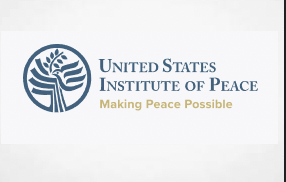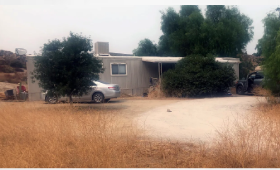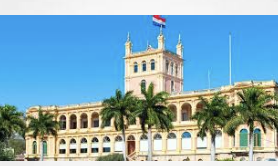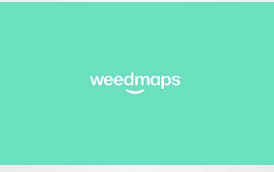A network of local and transnational criminal enterprises has expanded the Pacific’s ‘drug highway’ into a regional problem.
A quick succession of drug busts in Fiji earlier this year — the seizure of 3.5 tons of crystal methamphetamine followed by another 1.1 tons — underscored the threat that the illicit drug trade and narco-corruption pose to the stability and security of countries and societies situated along the so-called Pacific drug highway.
The Growth of the Pacific Drug Trade
The Pacific Islands are located along licit and illicit maritime trade highways that span the Pacific Ocean. The Pacific “drug highway” has become the main transit route for drugs and chemical precursors being trafficked from Asia and South America to lucrative markets in Australia and New Zealand.
Drug trafficking and other transnational crimes are enabled by the region’s vast and porous maritime borders, weak jurisdictions and inadequate legislation, corruption and limited enforcement capabilities.
A recent report by the National Research Institute in Papua New Guinea cited weak governance, corruption, improved technology, poverty and geography as key factors contributing to the growth of transnational crime in the Pacific’s most populous state.
In recent years, the illicit drug trade has spilled over into domestic markets in the Pacific Islands region where the drugs are increasingly being produced and consumed. Mirroring international trends, organized crime syndicates and cartels have colluded and adapted to changing markets.
Starting in the mid-2000s, outlaw motorcycle gangs such as the Australian Rebels and the New Zealand Head Hunters began establishing chapters in the Pacific Islands, notably Fiji and the Cook Islands, to better control and facilitate the trafficking of illicit drugs into Australia and New Zealand. These Pacific Island chapters quickly became nodes in a criminal network stretching across Asia, Europe and North America — ones that allowed indigenous and local crime syndicates to work in partnership with transnational syndicates that utilize the Pacific trafficking routes and offer access to the Australian and New Zealand drug markets.
This network of actors includes Chinese and other Asian syndicates, with Chinese organized crime increasingly active throughout the Pacific. In 2017, 77 Chinese nationals allegedly involved in operating an online fraud syndicate from Fiji were arrested and deported by Fijian and Chinese law enforcement. Then, in 2019 and 2020, Palauan law enforcement detained and deported hundreds of mostly Chinese citizens working in illegal online gambling operations. In some cases, there are documented links between the Chinese state, legitimate commercial enterprises, local elites and organized crime — such as in the case of Chinese 14K Triad boss Wan Kuok Koi, or “Broken Tooth.”
The network also includes criminal enterprises on both sides of the Pacific, with Mexican and South American cartels, Australian organized crime, New Zealand organized crime and U.S.-based gangs with links in the Pacific through criminal deportees all involved.
From ‘Drug Highway’ to Local Issue
This interconnectedness has turned the Pacific drug highway into a complex web of external and local syndicates, regional actors and hybrid networks — all of which exacerbated and contributed to the rise of drug trafficking and use as localized problems in Pacific Island nations.
The increasingly localized nature of transnational crime in the Pacific Islands region is marked by the spillover of drugs into communities; local actors serving as facilitators; growing corruption; and the societal impact of drug addiction, including rampant use of intravenous drugs, prostitution, exploitation of children, and criminal and violent behaviors marked by domestic and sexual violence. For instance, Tonga’s Women and Children Crisis Centre Director ‘Ofa Guttenbeil-Likikiliki has noted both the increase in domestic violence and its severity in cases involving illicit drugs.
In 2019, then-Fijian Police Commissioner Brigadier-General Sitiveni Qiliho publicly voiced what had become widely accepted among law enforcement and security professionals: The Pacific Islands were no longer transit points for the shipment of illicit drugs to Australia and New Zealand but had become sources themselves.
At the time, there was growing evidence that the “spillover” into local drug markets, coupled with the Pacific becoming a site of production, had given rise to a growing demographic of drug users. Drug-related arrests in Fiji increased by approximately 845 percent between 2009 and 2018, with methamphetamine-related arrests increasing by roughly 550 percent between 2009 and 2019. In response, Fiji drafted a national narcotics strategy and framework.
In 2021, Fiji’s director of public prosecutions, Christopher Pryde, claimed, according to news reports, that funds from illicit drug activities totaled more than $5 million per year and that “local traffickers could make between $2,500 and $5,000 a day from the sale of cocaine and meth in the domestic market.”
What Enables Pacific Drug Trafficking
Drug trafficking is, in part, enabled by the policies of partner countries. For example, the criminal deportee policies of Australia, the United States and New Zealand have all arguably contributed to the rise of transnational crime in the Pacific by returning individuals who have no safety net to vulnerable communities. This has directly undermined the policy objectives of development partners in the region.
The COVID-19 pandemic also exacerbated and amplified the impact of the drug trade on Pacific communities. The Pacific Islands Chiefs of Police observed the economic disruption caused by the pandemic could be facilitating local recruitment by drug traffickers in the Pacific. The problem became so disruptive that in 2020, at the height of the pandemic, Tonga had to amend its Illicit Drugs Control Act — with the acting justice minister, Samiu Kuita Vaipulu, stating that “ice” (methamphetamine) is “Tonga’s killing virus, not COVID-19.”
Another key enabler has been the rise of hybrid criminal networks. Papua New Guinea’s police commissioner, David Manning, publicly stated that Asian gangs have not just connected with local criminal gangs in PNG but had infiltrated them. The result has been a spike in illicit drugs, trafficking of women and girls, and smuggling of weapons. This has fueled tribal warfare and the corruption of government officials.
Besides having an impact on security and stability, the direct and indirect corruption of law enforcement, border security, customs and other agencies contributes to the erosion of democracy and, ultimately, undermines the rule of law.
The involvement of corrupt government officials in the drug trade adds another wrinkle to the problem. Days after the methamphetamine bust in Fiji in January, Chew claimed that high-profile individuals with authority and high-ranking police officers were suspected of being part of the drug ring. This came as little surprise, as years earlier the then-head of Fiji’s Police Drug Intelligence Unit, Anare Masitabua, raised similar concerns about the infiltration of Fiji’s security and law enforcement agencies.
In 2019, a senior Tongan customs official and a police officer were arrested in Tonga’s “war on drugs” for facilitating the trafficking of methamphetamine, cocaine and illegal firearms from the United States. Twenty-eight police officers were suspended. Tonga’s then police minister, Mateni Tapueluelu, warned influential Tongans: “Don’t think you can sit on some high places and think you’re too high for the police to reach, it’s just a matter of time. You deal, you pay.”
The transnational crime landscape in the Pacific intersects with governance, development and security in complex and at times violent ways. Current trends show that drug trafficking through the Pacific is increasing and the network of transnational and local actors facilitating the trade is growing, adapting and evolving. Further research to map these networks and actors is critical to addressing the paucity of data and to enable the development and implementation of strategies which will minimize the damage to Pacific societies, especially its youth.
Jose Sousa-Santos is a visiting fellow at the University of Canterbury’s Macmillan Brown Pacific Studies Centre.


















